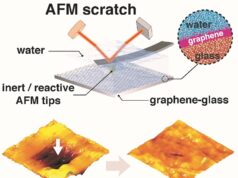New regulations streamline AI chip exports, enhance security standards, and ensure U.S. dominance in global AI ecosystems.
Team Youngistaan
The Biden-Harris Administration has announced a landmark Interim Final Rule on Artificial Intelligence Diffusion, aimed at strengthening the United States’ leadership in AI technology while safeguarding national security. As artificial intelligence becomes increasingly central to global security and economic power, this initiative ensures that U.S. technology remains at the forefront of the AI revolution.
The rule introduces six mechanisms to facilitate responsible diffusion of AI technologies, streamline exports, and raise security standards:
- Unrestricted Chip Sales: 18 key allies and partners can now make seamless large-scale chip purchases without restrictions.
- Streamlined Licensing: Orders under 1,700 advanced GPUs are exempt from licenses, accelerating shipments for low-risk sectors like academia and healthcare.
- Universal Verified End User (UVEU) Status: Trusted entities in allied nations can place significant computational power globally while retaining high-security standards.
- National Verified End User (NVEU) Status: Trusted entities in non-adversarial nations can purchase up to 320,000 advanced GPUs over two years.
- Non-VEU Caps: Foreign entities outside allied nations can access up to 50,000 GPUs per country, supporting diverse local industries.
- International Agreements: Governments aligned with U.S. security values can double chip caps, fostering collaboration and shared AI standards.
The regulation also imposes stricter controls on adversarial nations, blocking their access to advanced AI systems. Measures include preventing unauthorized transfer of AI model weights and securing closed-weight AI models to thwart misuse.
Why It Matters
These policies aim to curb potential risks posed by adversaries exploiting advanced AI for malicious purposes, such as cyberattacks, mass surveillance, and development of weapons of mass destruction. By keeping advanced AI development “on American rails,” the U.S. strengthens its economic competitiveness while ensuring global trust in its AI ecosystem.
Background and Collaboration
The rule builds on earlier chip control measures from 2022 and 2023, developed in consultation with Congress, industry leaders, and allied nations. It reflects a decade-long strategy to bolster AI innovation while safeguarding national security.
With AI poised to shape the 21st century, this rule positions the U.S. as a global leader in secure and responsible AI development, ensuring economic strength and technological superiority.







